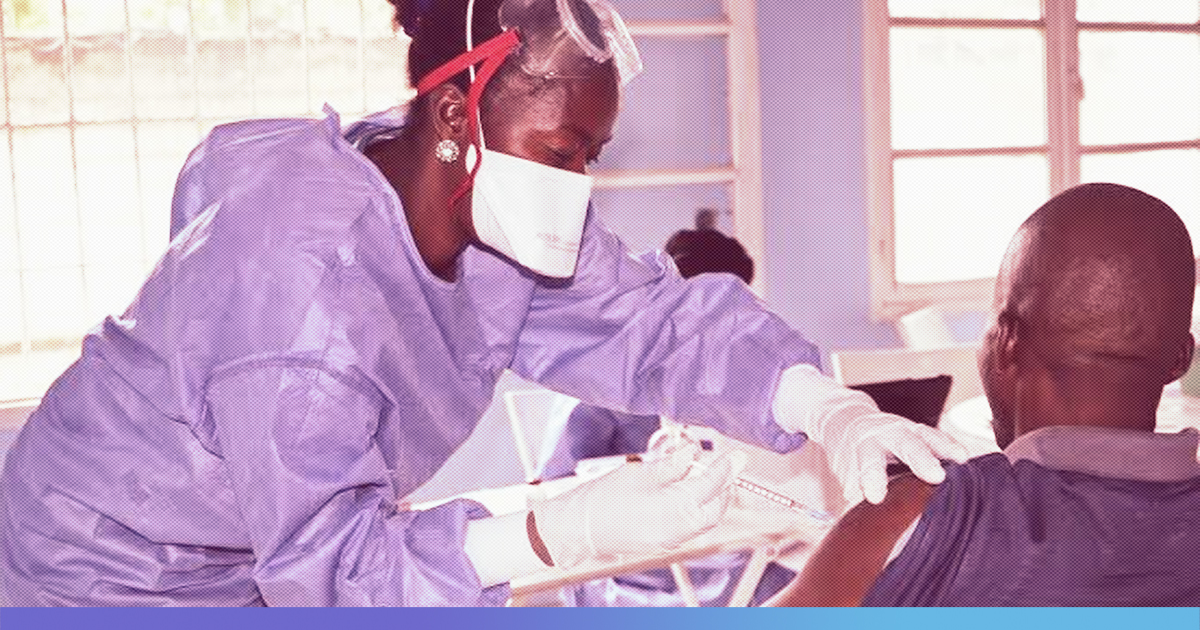A 50-year-old woman infected with Ebola died in western Uganda on June 13, a day after her five-year-old grandson died, confirming Uganda’s exposure to the deadly Ebola infection that has crossed the border from Democratic Republic of Congo. Both of them were undergoing treatment at Bwera Hospital in Mpondwe-Lhubiriha town council. The boy’s brother is also been infected with the deadly virus, reported AP. The family had surreptitiously crossed the border from the Democratic Republic of the Congo.
Three more suspected Ebola patients who were kept in the isolation centre in south-western Uganda have run away. According to media reports, the Health Ministry has said that around 27 people in Uganda may have made direct contact with the two people who had died due to Ebola, thus raising concerns that they might be infected and are spreading the disease.
Following the spread of Ebola, the Uganda Health Ministry has flagged an Ebola alert in the country on June 12. The World Health Organisation has convened an emergency meeting on June 14 at its headquarters in Geneva, to discuss whether to declare a global health emergency. If the specialised agency of the United Nations declares it a health emergency than a more aggressive response to tackle the disease will be in place. Strict border controls will be imposed along with travel restrictions.
The Health Ministry has said that family members of the boy who crossed the border on June 9 – mother, father, two siblings and a maid were returned to the Congo. The ministry, along with WHO has also announced that a rapid response team had been dispatched to identify others at risk. According to the WHO, Uganda has already vaccinated about 4,700 health workers against the disease. The country has also cancelled market days and prayers that take place at close proximity to the border and attract more than 20,000 people. Uganda’s officials have identified 22 districts which are at high risk as they are close to the border and witness high levels of movement. The country has set up medical monitors at the border to detect any case of people crossing the border carrying the disease.
Fearing large gathering might include Ebola carriers, the Health Ministry held a meeting with leaders of the country’s Kingdom of Rwenzururu in western Uganda on June 13 to discuss the funeral for Queen Mother Christine Mukirania. The European Union has also announced to fund 3.5 billion Euros to help South Sudan and Uganda to tackle Ebola cases, reported observer.org.
The Ebola outbreak in the Democratic Republic of the Congo, which began in August last year is considered to be the second-largest in the history of the disease. As of now, 1,400 people have already died, which comprises 70% of people infected with the virus. Earlier to this, the Ebola outbreak in West Africa took place between 2013-2016 killing 11,310 people. Ebola virus disease is one of the deadliest viral infections. The disease was first discovered in 1976 after its two fatal outbreaks. The first outbreak took place in the Democratic Republic of Congo and the second happened 850 km away in South Sudan. The symptoms of the easily transmitted disease are fever, vomiting, along with severe diarrhoea. The disease can cause severe internal bleeding.
Also Read: India Facing Its Biggest Ever Zika Outbreak; 32 Cases In Rajasthan, Bihar On Red Alert











